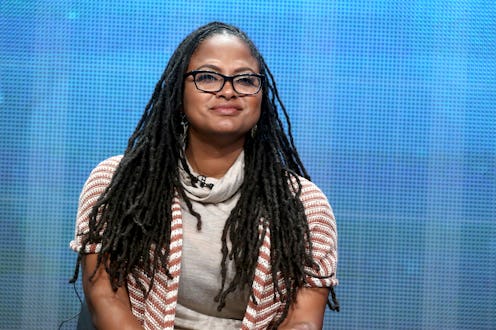Entertainment
Ava DuVernay's Hurricane Katrina Film Is Sneaky
It would have been easy for any of us in Ava DuVernay’s position to come back from this year’s Oscar nominations draped in discouragement. Although her civil rights film Selma earned a warranted, albeit obligatory, nod for Best Picture (one without much of a genuine chance at the a trophy in opposition to Boyhood, The Imitation Game, Birdman, and company), the director herself, and her magnificent leading man David Oyelowo, walked away without notice.
Without the abundance of fierce competitors that the Academy might traditionally claim in defense of an omission like that of DuVernay or Oyelowo — note the presence of The Imitation Game’s Morten Tyldum in the directing category and Foxcatcher’s Steve Carell for Best Actor — the implications of their absences are pretty bad.
Following announcement of Best Director and Actor categories vacant of the deserving Selma nominees, proponents of the film’s merit vocalized accusations of the Academy’s aversion to black artists, women behind the camera, or the inflammatory nature of Selma’s subject matter. The landscape looked bleak for filmmakers like DuVernay: those who wanted to tell stories not especially palatable to the industry tongue, though ones most desperately in need of a taste. Nevertheless, the director’s resilience presents itself in the revelation of her next project less than two weeks past her Oscar snub.
DuVernay will write and direct a “murder mystery” film set in coastal Louisiana during Hurricane Katrina, exploring “the complexities of intimate relationships within times of chaos, while also examining the chaos itself,” as she tells The Hollywood Reporter. DuVernay will reteam with Oyelowo (uniting for the third time — before Selma, they worked together on the drama Middle of Nowhere).
Instantly, we’re hit with an air of relief. The Academy’s negligence hasn’t prompted DuVernay to recoil, but to drive further into the trenches, focusing her efforts on a thematic construct not entirely dissimilar to Martin Luther King Jr.’s 1965 civil rights marches through the state of Alabama. The tragedy of Hurricane Katrina showcased alarming disregard on the part of the American government toward the community of New Orleans, a transgression that has found spotlight in editorials, books, and documentaries, but not yet a feature film in earnest.
This is another characteristic that DuVernay’s yet untitled project shares with Selma. As the director vocalized a number of times before the release of Selma, there has never been a major studio film about Martin Luther King Jr. before — an astounding, if not obscene fact when you consider Hollywood’s longtime addiction to biographical features. Unshaken by the dearth of industrial favor earned by DuVernay’s stab at this untapped market, she heads yet again into territories draped in an unspoken taboo.
She knows that Hollywood doesn’t want the movie about Hurricane Katrina that she is inclined to tell. The last successful venture tampering in the themes was Beasts of the Southern Wild, itself a Best Picture nominee, which can hardly be credited with tackling the sociopolitical ramifications of the disaster; in fact, some might go so far as to accuse Beasts of drifting the other way in its sympathies, depicting some of the victims of its central hurricane (not explicitly referred to as Katrina) as dangerous and stubbornly oppositional to the eventual aid of their helicopter-bound saviors.
That said, DuVernay is clever. The description of the film, though wanting for detail at present, as a “murder mystery” suggests a packaging more amenable to the mainstream psyche. If the public won’t take its medicine, then perhaps Dr. DuVernay is called to disguise it as a snack. If the filmmaker sees the utilization of Hollywood-friendly genres like crime, mystery, and thriller as a means to introduce mass viewers to a story about the atrocity that was Hurricane Katrina — a story whose specifics require a bolder broadcast than ever before — then she is ready and willing to break out the bloody candlestick and magnifying glass.
It’s not what you’d call “selling out.” On the contrary — in devoting herself and her star Oyelowo to a Hurricane Katrina story just weeks after being passed over for nominations for their work with the civil rights era in Selma, DuVernay proves herself to be more dedicated to her ideals than a good many directors working today. But what good is adhering to your message if said message isn’t making its way to the people who need to hear it? If DuVernay needs to use a bit of genre flavor to get the word out, then she’s doing exactly what she seems to have gotten into the business to do.
Images: Getty; Paramount Pictures (4)
